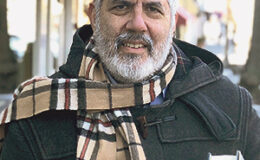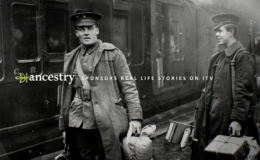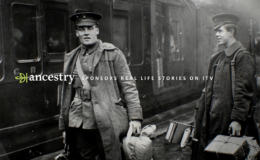Gordon Barker’s mother, Nancy, was a war veteran who overcame much adversity in her life
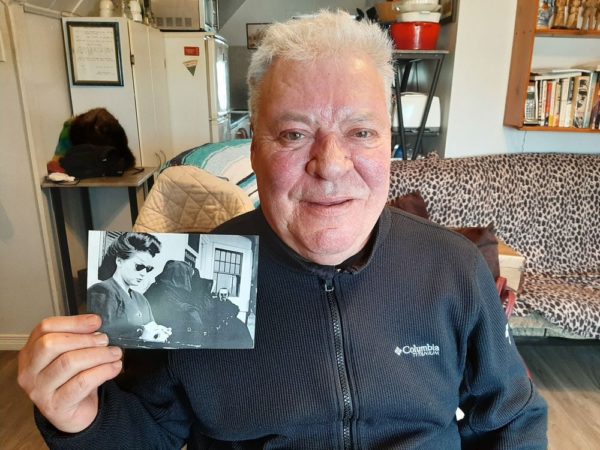

Espanola resident Gordon Barker holds a photo of his mother, Nancy Barbara Vincent (nee Erickson) which was taken in London, England during the Second World War. Barker has tirelessly worked to piece together his mother’s life since her death in 2014. COLLEEN ROMANIUK
Gordon Barker wants to honour his mother’s memory.
A decorated war veteran who served in England during the Second World War, Nancy Barbara Vincent (nee Erickson) has always served as a source of inspiration and strength in Barker’s life.
But delving into her past and his family history hasn’t always been easy.
“It’s been hard, and sometimes painful, and frustrating,” said Barker, who has tirelessly tried to piece together Vincent’s life since her death in 2014.
According to a recent survey conducted by Ancestry.com, 68 per cent of people say that knowing more about the women in their family tree would be a source of inspiration and empowerment, but only 15 per cent currently say they are familiar with them.
“This year, we are encouraging everyone to discover more about these women and draw upon their legacy,” said Lesley Anderson, family historian at Ancestry.
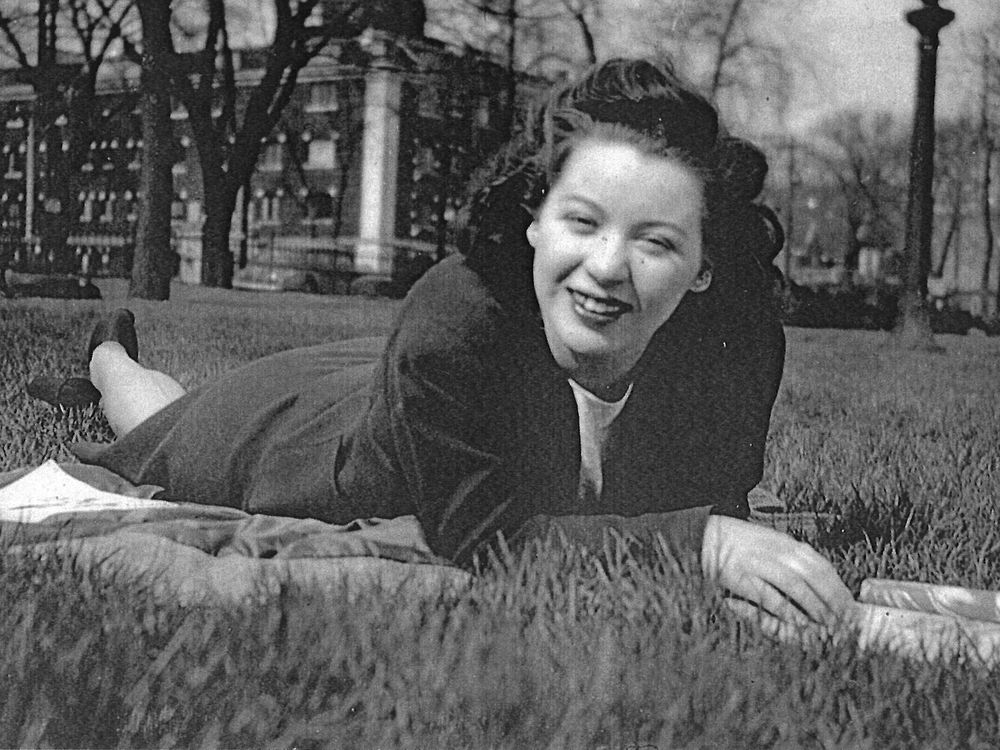
A decorated war veteran who served in England during the Second World War, Nancy Barbara Vincent (nee Erickson) has always served as a source of inspiration and strength in her son Gordon Barker’s life. Gordon Barker family photo
“Whether they changed the world, changed a community, or simply changed a life, these women and their incredible stories are worth honouring and celebrating this International Women’s Day.”
Barker’s story begins when he discovered his mother’s long-lost sister, Hazel, in St. Thomas, Ont. in 2006.
Vincent had just recently discovered that she had an older sister that she’d never met, and she had been searching for her for a while.
This was a time before genealogy websites and DNA services like Ancestry and Family Tree. Barker then got on the phone, trying to access government records, searched library archives and called cities to find resources.
By the time Barker found his aunt, his mother had fallen ill with dementia.
“I didn’t tell her that I found her sister because her sister had already passed away by that time,” he said. “With the dementia and everything going on, I didn’t want to cause her any more pain.”
Six months after Vincent passed away, Barker started sorting through the things his mother left behind.
In one of the bins in his apartment, he came across a grey suitcase. It was locked – but a friend of his helped him pop it open.
The suitcase was filled with photos, letters, documents – even old doctor’s notes dating back to 1924.
As he sorted through the suitcase, a picture of his mother’s life began to form.
Vincent was born in Winnipeg on November 28, 1923. Her birth parents emigrated from Scotland to Canada in 1884.
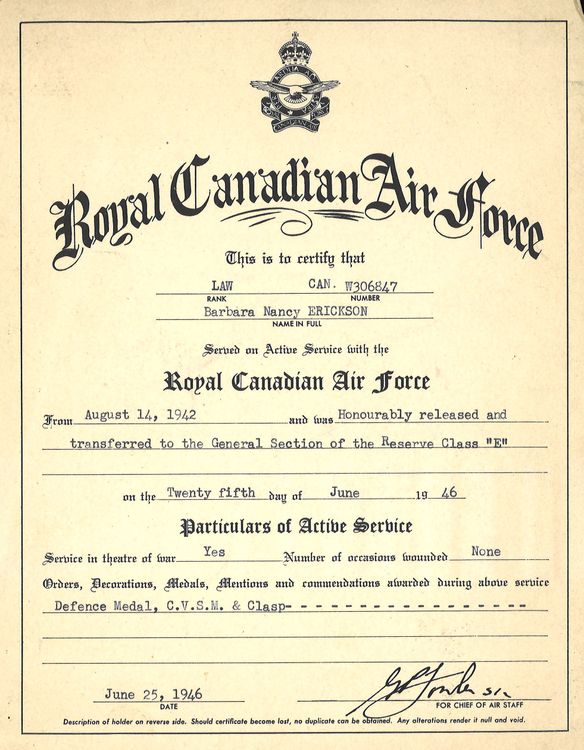
Gordon Barker family photo
Barker’s mother and his uncle were adopted at a young age.
After experiencing issues with their adoptive family, Nancy and Gordon ended up at The Children’s Home of Winnipeg, but it is unclear how long they stayed there.
“At this point, there is a gap in the history,” said Barker. “I have no idea where she was or what she did until she was about 16 and started school at St. Mary’s in Winnipeg.”
Vincent joined the Royal Canadian Air Force on Aug. 14, 1942.
While serving as a secretary for the military in London, England during the Second World War, Vincent spent her time assigning her soldiers to duty and performing other administrative tasks.
She met a lot of close friends and learned how to ride horses. But her time spent serving during the war came at a price.
“My mother didn’t like to talk about it when she was alive,” he said.
“She spoke about the bombs. The Germans used to send Buzz Bombs into the country, but they would only fill them up with just enough fuel. So you would hear them coming, but then they would suddenly go silent. And they wouldn’t know where they were going to drop.”
Leaving the bomb shelters to witness the destruction was never easy.
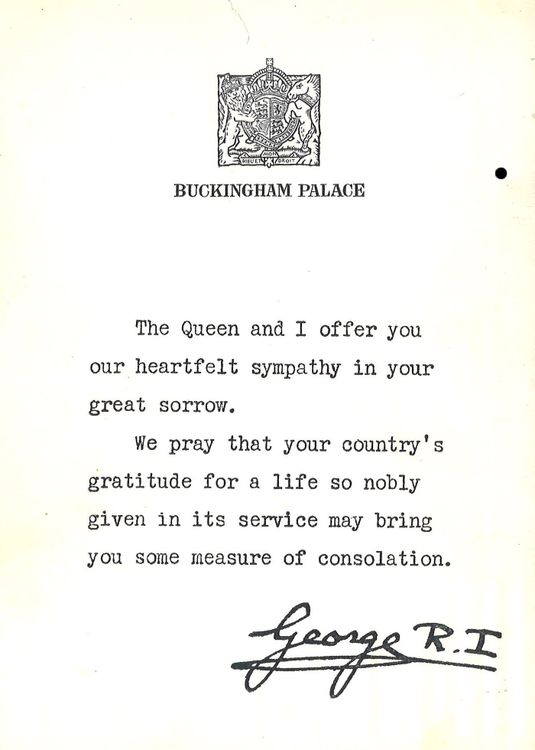
Nancy Barbara Vincent’s brother, C. Gordon Erickson, was killed in action in Holland in 1944. Gordon Barker family photo
While she avoided the historic London Blitz, a German bombing campaign against the United Kingdom that occurred in 1940 and 1941, she would have experienced Operation Steinbock, often referred to as the Baby Blitz, in 1944.
Barker remembers that, around Christmastime in December, his mother would go to her bedroom and close her door, telling him and his brother that she was wrapping gifts.
One night, he put his ear to the door, and he heard his mother crying.
“Later, she told me that it was a difficult time of year. It was when she found out her brother had been killed.”
Vincent’s brother, C. Gordon Erickson, was a private in The Queen’s Own Cameron Highlanders of Canada.
He was killed in battle in Holland in October 1944. Barker hopes to visit his grave in Holland one day.
Vincent and Erickson were just two of about a million Canadians to serve in some capacity during the Second World War – a significant number given that Canada’s total population at the time was about 11 million.
More than 45,000 people gave their lives, and another 55,000 were wounded.
‘It’s history. It’s her history. It’s Canada’s history. It’s an empowering story about a courageous woman that other women can look up to.’
On June 25, 1946, Vincent was honorably released from active service. The document states that she served in the theatre of war, but that she was never wounded.
Barker found his mother’s many medals in a box in the suitcase, including a Defence Medal and a Canadian Volunteer Service Medal, which were presented to her for her services to the British Commonwealth.
Vincent returned to Canada, eventually moving to Espanola in 1953, where Barker and his brother Paul Melvin “Mel” Vincent were born.
She studied at Cambrian College in the 1970s, where she sought to upgrade her secretarial skills, and she worked various jobs around the city, including at the paper mill when it was run by the KVP Company.
She also took pride in staying involved in her community as the secretary of the Royal Canadian Legion, and a judge at local schools for Remembrance Day ceremonies.
Her sons went on to enjoy rewarding careers – Mel worked at E. B. Eddy, which later became Domtar, until he retired last year, and Barker worked underground as a jumbo operator and shift boss in mines around the world.
When asked why he wanted to share his mother’s story, he smiled.
“It’s history,” he said. “It’s her history. It’s Canada’s history. It’s an empowering story about a courageous woman that other women can look up to.”
Barker is looking forward to taking a DNA test through Ancestry to learn more about his father’s side of the family.
All photos are the sole property of Gordon Roland Barker.
sud.editorial@sunmedia.ca
Twitter: @SudburyStar
